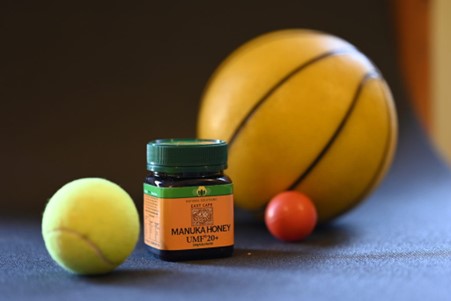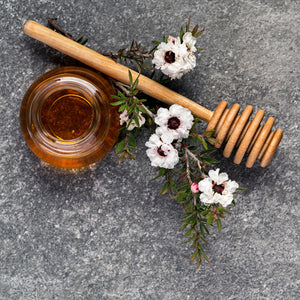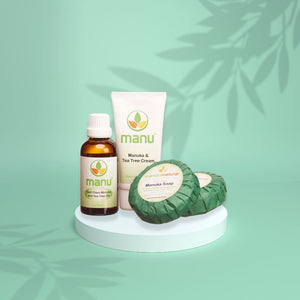
How Honey can Optimise Athletic Performance
Honey and athletic performance
When we say sports success, we mean not only results that are closely related to psychophysical health but also victories. However, for them, you need a good source of food. But we never think of honey and athletic performance.
Among top athletes, more and more people reject dextrose and turn to honey.
Many experts agree that dextrose is a miserable attempt by traders to make quick money without doing you any favor.
With honey, many vitamins, minerals, and compounds do you a positive favor… And all that is obtained in one tablespoon of honey!
What does honey do for athletes?
Honey is beneficial for athletes because it is quickly absorbed into the lymphatic system. From there, it passes into the blood and tissues, strengthens muscle work, has a stimulating effect, and increases the percentage of hemoglobin in the blood.
Honey is beneficial for athletes and intellectuals but also for people who are recovering from illness.
Honey is used in sports to increase strength and endurance. And you can take it 15 minutes before the beginning of physical activities, in the amount of 60-80 grams.
Why would you want to use honey in your athletic life?
1.Honey ideally satisfies all the requirements set before the competition, reduces effort during the match, and for quick recovery after it.
2.Honey, thanks to its high caloric value, releases a lot of energy even when given in small quantities.
3.Athletes generally tolerate honey much better than any other type of boosting supplement or energy drink.
4.Honey is pure food, free of microorganisms and artificial irritants.
5.Honey is a prevalent form of sugar among athletes due to its pleasant taste.
Is honey good before a ‘game’?
Thanks to its caloric content, even in small quantities, products from the hive are ideal helpers.
Honey is a kind of natural doping because it is known that after consuming honey, a strength appears, fatigue decreases, and physical activity SKY-ROCKETS.
This effect of honey was familiar to the ancient Greeks, who gave the soldiers honey before the heavy battles, which made them stronger, braver, more vigorous, and more enduring.
In ancient Rome, fighters also took honey before the competition.
At the ancient Olympic Games, the competitors took honey before starting in all disciplines that require long-term effort.
As a high-calorie and powerful energy product, honey is also used in the daily diet of astronauts.
Honey and athletic performance (When is a good time to take it?)
The use of honey in athletes can be rightfully recommended as:
Food before the competition
After the competition
As a tonic during the rest
In the daily diet, especially before breakfast, to meet energy needs
As a general sweetener
In combination with different dishes
It is recommended to be taken 15 minutes before beginning physical activities, in 60-80 grams. However, you should note that honey, as an excellent energy source, can be used both before and after training.
Before training, it is absorbed almost 100% within half an hour or an hour, which cannot be compared to any artificial stimulant.
Just two tablespoons of honey before training will allow you to:
Accelerate metabolic processes and thus improve blood circulation
Increase the speed of muscle cleansing from lactic acid
Reimburse the costs of energy
Better concentrate and work more efficiently
For athletes who train intensively, the issue of fast recovery is fundamental. Therefore, it is not surprising that honey is in the daily diet of athletes.
During training and competitions, athletes make maximum efforts in a short time interval, and on that occasion, their body spends a lot of physical energy.
Such losses need to be compensated quickly, which is precisely the property of honey because glucose quickly reaches the tissues, increasing the work of muscles.
Research conducted on athletes who took honey and other bee products has shown that their physical condition, oxygen consumption, and hemoglobin improved.
At the end of the experiment, a decrease in lactate (a lactic acid compound) in the blood was recorded. In addition, blood urea also decreased, and dynamometry, spirometry, and pneumotachometry indicators improved.
As a result, the athletes achieved better results and were more rested.
Honey after training will allow you to reduce catabolic processes to almost zero, filling the gaps in energy exchange almost instantly! And all this is due to the fine structure and rapid assimilation of this natural product, which stimulates recovery processes and does not irritate the intestinal and gastric flora.
But that’s not all!
Combining honey with other ingredients can get unique sports cocktails that even anabolic steroids can’t match!
After all, honey is highly valued for its exceptional richness in B vitamins, such as B2 or B6, which are responsible for accelerating anabolic processes and can also increase testosterone production.
As a result, faster recovery and muscle tissue development can be achieved in very few ways.
Among other things, honey itself promotes rapid wound healing, increases the pain threshold, and improves overall body tone if, as I said earlier, it is used sparingly.
As you may have noticed, I often find that many products are harmful, yes, but harmful only if consumed excessively.
So let’s respect the measure here too, and everyone will be just fine!
HOW MUCH HONEY TO TAKE FOR AN OPTIMIZED ATHLETIC PERFORMANCE?
Carbohydrate recommendations range from 3-10 g/kg/day, depending on the sport.
The range of 3-5 g/kg is for those with low-intensity or skill-based exercise routines.
5-7 g/kg is suggested for those engaging in moderate-intensity training programs of 60 minutes per day.
Those engaging in moderate-to high-intensity exercise for 1-3 hours per day should ingest between 6-10 g/kg, and the rare athlete engaging in over 4 hours per day of moderate- to high-intensity exercise should consume up to 12g/kg per day. (1)
Before exercise, general recommendations suggest carbohydrate intake should be 1g/kg per hour before endurance activity.
Karpinski C, Rosenbloom C. Sports Nutrition: A Handbook for Professionals, 6th Edition. Academy of Nutrition and Dietetics, 2017.
This is not always feasible, but you catch my drift?!
Honey value of vitamins and minerals in sports
Honey contains about 75 percent glucose, fructose, and dextrose, but also vitamins B1, B2, B3, B6, B12, vitamin K, vitamin C, then minerals iron, copper, manganese, silicon, chlorine, calcium, potassium, sodium, phosphorus, aluminum, magnesium, and acids: gluconic, formic, acetic, malic, and citric.
A small proportion of honey contains proteins and enzymes, pollen grains, and aromatic substances of various antiseptic substances.
Now, it has been proven that out of 24 microelements in the blood, honey contains 22.
It is the only natural creation containing almost 91% of all necessary substances for human blood circulation and the only natural product on Earth with 100% absorption.
In addition, honey has potent antioxidant, antibacterial and antifungal properties.
Since the time of the ancient Egyptians and ancient Greece, honey has been the basis of a healthy and long-lived life. So it is no coincidence that it was called, even in those times and through religion itself – “nectar of the gods.”
Numerous studies of honey (USDA) in sports performances indicate that honey as a pre-workout and postworkout is an indispensable addition to sports nutrition. It is also vital as a supplement to a protein shake.
As sports success often depends on the body’s supply of carbohydrates, those that are more easily degradable are especially important.
What makes honey valuable is the content of vitamins and minerals it has.
Honey is extremely rich in chromium, a mineral necessary for breaking down carbohydrates, which reduces the side effects of consuming higher amounts of simple sugars.
Unlike sugar, honey contains other simple carbohydrates, such as glucose and fructose. In addition to sucrose, complex carbohydrates are also part of this natural content.
What else does honey have?!
Honey is rich in essential amino acids that the human body cannot produce but must ingest through food.
However, I must say that honey has all the amino acids needed by the human body, but their amount is not enough and you must take them from other sources.
Protein levels in honey are also low.
Honey ingredients = robust bones
Honey is a source of carbohydrates containing flavonoid compounds that act as antioxidants and have ergogenic properties (enhancing physical performance).
Carbohydrates (CHO) make up the most considerable portion of honey’s nutritional composition (95-99%). The glycemic index (GI) varies from 32 to 87, in the average water content range of 13.6% to 19.2%.
Other essential compositions of honey include vitamins and minerals.
A study by Morillas found that protein carbonyl (an oxidative stress marker) dropped significantly following a 90-min cycling test when racers were supplemented with polyphenolic antioxidants (like those in honey).
Other compounds found in honey (vitamins B6, niacin, thiamine, pantothenic acid, and riboflavin) are essential in enhancing bone health.
Five studies reported changes in bone strength after consuming honey alongside some jumping exercises or aerobic dance. (2)
Honey over dextrose
What happens after dextrose intake?
Carbohydrates reach the bloodstream, like glucose, and are either burned to provide energy, stored in muscle cells as glycogen, or stored in fat cells as triglycerides.
Upon entering the bloodstream, glucose stimulates the release of the hormone insulin, which “takes” glucose from the blood and determines where it will be stored. Since dextrose has a very high glycemic index, it enters our system exceptionally quickly and thus stimulates a very fast insulin response.
Insulin is an anabolic hormone and not only “brings” glucose to muscle cells but also proteins and amino acids, and other essential nutrients, such as creatine, glutamine, etc …
However, experts from the University of Colorado are categorical.
They claim that dextrose provokes the pancreas in an unnatural way to increase insulin secretion.
Such a game with insulin is a potential danger for the athlete to get diabetes, which is the most common cause of stress and hereditary factors.
Recent research has shown that bodybuilders lose their sight due to playing with insulin, i.e., taking dextrose.
On the other side, honey is a natural multivitamin, multimineral bomb very rich in glucose. Just one tablespoon of honey in a protein shake is what the body needs.
Honey represents a real revolution as a supplement in sports nutrition.
If you take it directly, it is necessary to keep it in the mouth for a while because, in that case, many substances will be dissolved directly into the bloodstream through the mucous membrane.
If you need free carbs after a workout to support whey protein, again, honey is a recommendation.
Athletes’ experiences with honey are tremendous, and honey often replaces all simple sugars in the diet, especially when the form is “grinding,” and energy intake must remain high.
This is also characteristic of pro athletes, who must regulate weight but not through muscle mass and strength loss.
Scientific research on the unique properties of honey also starts from studying the hibernation of bears. The fact that bears lose only 25 percent of their strength and muscle mass during hibernation speaks about the magical properties of honey.
Also, it is little known that special units in America, which require superhuman efforts, use a mixture of honey and coffee extract. (3)
The US National Honey Board reported the results from three clinical trials on honey by various athletes, outlines IMAGINutrition.
The studies evaluated honey compared to other popular forms of carbohydrates used by athletes.
Three double-blind, placebo-controlled studies were conducted at the University of Memphis Exercise and Sports Nutrition Laboratory, led by Dr. Richard Kreider.
“We wanted to see if honey would be a good source of carbohydrate for athletes in comparison to other forms of carbohydrate. Honey did as well or better in several areas,” stated Dr. Kreider.
The first trial involved 71 athletes who took one of seven carbohydrate gels, including honey and a placebo. Results showed that honey produced only mild blood sugar and insulin increases, prevailing over dextrose. It was similar to a popular commercial carbohydrate gel.
This indicates that honey could be an effective pre-workout energy source that does not induce hypoglycemia.
The second trial studied 39 weight-trained women and men. They immediately consumed a protein shake blended with sucrose, maltodextrin, honey, or placebo as a carbohydrate after an intensive workout.
Result? The honey-sweetened “muscle shake” was the only one to sustain blood sugar over the two hours following the exercise.
Honey for cycling and running
The final trial focused on nine competitive cyclists who took honey, glucose, or placebo gel before and at 10-mile intervals of a simulated 40-mile race, reports IMAGINutrition.
That significantly increased power and speed over placebo, equalling the performance of dextrose. This study shows that honey is an adequate carbohydrate for endurance athletes. “Our first study suggested honey could operate as a ‘time released’ muscle fuel for exercising muscles.” (5)
Three studies investigated the effect of honey on exercise performance: 64-km cycling TT, 20-min running TT, and high-intensity run.
All three studies showed acute consumption of honey improved exercise performance. However, few studies have shown that taking relatively small amounts of honey (20 g/h) was adequate to exert beneficial changes in accomplishments.
Why is that?
It’s pretty simple. Slow-release of glucose provides a continuous supply during prolonged exercise and delays muscle glycogen depletion. In short, a low GI (glycemic index) meal reduces CHO oxidation and favors fat oxidation compared to intermediate or high GI, which could optimally be beneficial during prolonged exercise.
A. Bonen, J. Mcdermott, C. Hutber, “Carbohydrate metabolism in skeletal muscle: an update of current concepts,” Int J SportsMed, vol. 10(6), pp. 385—401, 1989
Additionally, one of the studies also said that honey positively regulated stress and reproductive hormones.
The remaining five studies reported improved immune response after ingesting honey and intense resistance or aerobic exercises.
All studies showed the benefits of honey alone or together with training.
Yes, it is believed that the carbohydrate content of honey plays a vital role in sustaining endurance exercises.
In contrast, other active properties combined with exercise stimulus may positively influence bone health, immune system, reproductive hormones, and inflammatory responses.
SPORTS COCKTAILS WITH MANUKA HONEY
The best thing when you take honey is that it gently stimulates recovery processes without irritating the intestinal and gastric flora. In addition, if you combine natural sweets with other ingredients, you will get unique sports cocktails.
Recipe 1. Manuka honey + orange. Only 50 grams of manuka honey and 30 grams of various nuts per meal can stimulate anabolic processes due to their natural properties. And if you dilute all this with freshly squeezed orange or grapefruit juice, you will also get a perfect fat burner, which can be used after cardio training, half an hour before meals.
Recipe 2. Manuka honey + milk + banana. Add 1 tablespoon of honey to 300 ml of low-fat warm milk and sliced banana. Smash everything in a blender and drink after training.
Recipe 3. 1 tbs Manuka honey + 1 egg + 3 tbs walnuts + 2dl kefir. 1 raw Mix it with a mixer and drink after training.
Recipe 4.Honey is also very good in combination with … garlic! Yes, yes, this is a fairly old recipe used by circus people at one time. Its essence lies in the fact that together, these two components actively stimulate the production of growth hormone and testosterone, which can increase it by as much as 2-3 times. Therefore, if you mix these two, you will notice that you have started to recover much faster!
So, it doesn’t matter if you want to achieve results in bodybuilding, swimming, athletics or weightlifting, long jumps, or pole climbing – hardworking bees have made sure that you have the best helper in your diet in a challenging task!
In the end …
Honey contains lots of sugar, yes.
And people demonize sugar these days, just like they used to demonize fat. So it looks like people always want something to blame when in reality, it’s their shitty choices that are to blame.
Not all sugar is bad for you. However, too many calories and not enough movement is bad for you.
Many cyclists, athletes (fast walking, marathon, trail, long-distance racing), swimmers, and other athletes use honey as a natural fuel.
Definitely the most famous is tennis player Novak Djokovic, who in his book “Serve for Victory” emphasizes how important it is to take two spoons of honey every day.
If you want to know which honey uses this outstanding tennis player, click the link below to find out.
And remember to stay sweet!
ORIGINALLY PUBLISHED on blog.manukanatural.com



Leave a comment